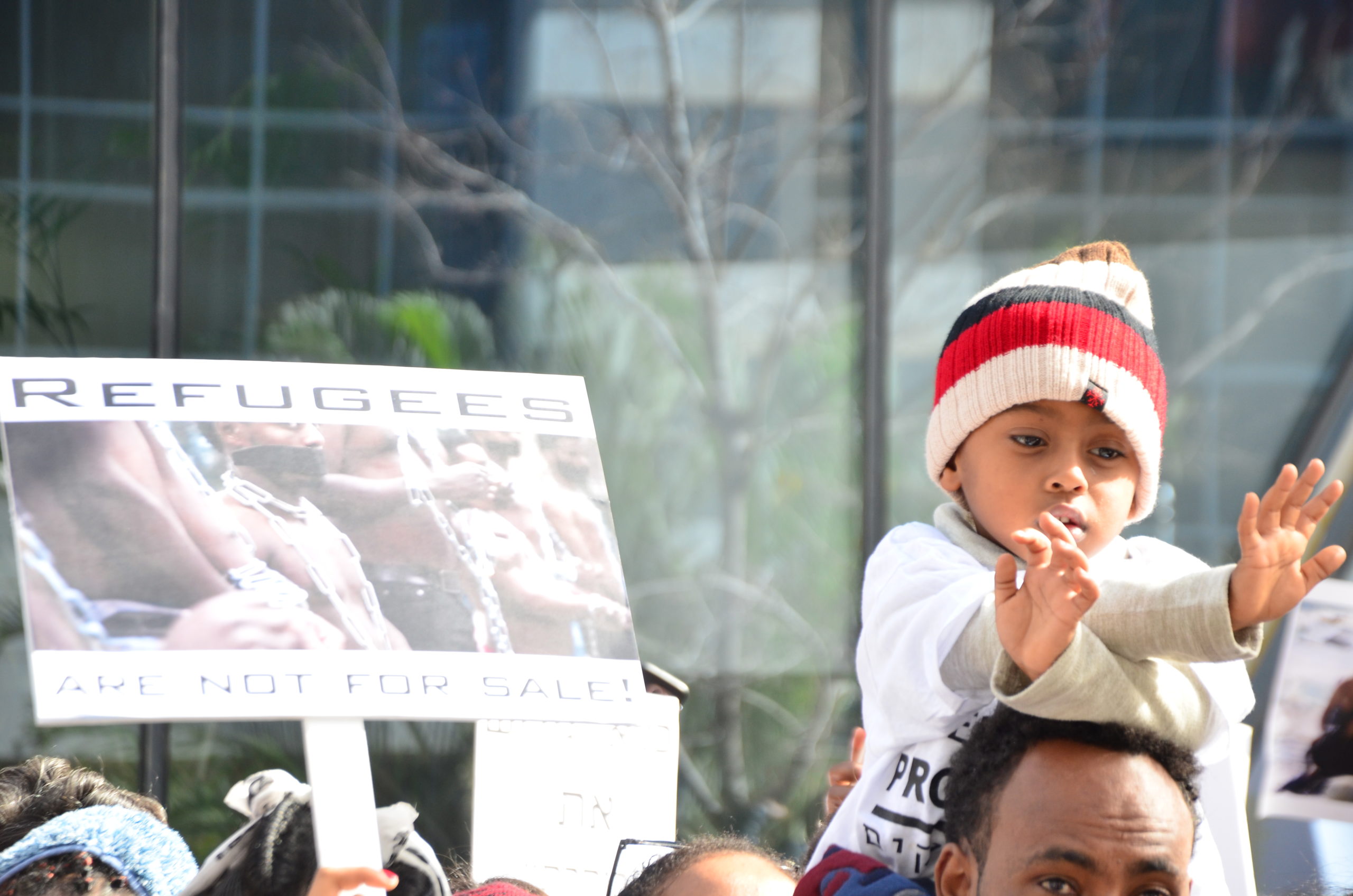Advocates are calling on Israeli officials to return 285 million shekels escrowed in framework of Deposit Law
Activists for African asylum-seekers will launch the “Give Us Our Money” campaign on April 22, demanding that the government return over 285 million shekels ($80.2 million) in wages taken from refugees. This action comes amid the COVID-19 pandemic, a disease that has left many of the 31,000 people who fled to Israel suddenly unemployed and without a safety net.
“We are hoping the government will see us as human beings who need to eat and need to live in apartments – not on the street – and will recognize that coronavirus doesn’t discriminate between citizens and noncitizens,” Monim Haroon, an activist and asylum-seeker from Darfur, Sudan, who was eventually granted status in December 2017, told The Media Line.
A demonstration in front of the Knesset is planned for Wednesday morning, featuring several asylum-seekers and their families. The protest is purposefully small in order to comply with the government’s coronavirus safety regulation that limits the number of people who can gather together.
Most of the asylum-seekers worked in service-related industries, such as restaurants and cleaning. These jobs have shuttered in the wake of COVID-19, leaving many in the community vulnerable to homelessness and hunger.
“The refugees’ situation is deteriorating,” Haroon said.
The refugees were already on an unstable financial footing.
As a result of the 2017 Deposit Law, an employer must put 20% of an asylum-seeker’s salary into an escrow account supervised by Bank Mizrahi-Tefahot. The refugee may only recover the funds if he or she leaves the country by a given date. In addition, employers are required to contribute an additional 16% of their wages for social service benefits such as unemployment insurance, which would not come from the Israeli government.
“Since [the deposit law was passed], it’s very hard for refugees to have savings for a rainy day, Sigal Kook-Avivi, a human rights activist for eight years, told The Media Line. “They’re just working to pay the rent and to have health insurance and education for their children. They are living on nothing so they can’t save.”
Furthermore, the legislation, activists argue, does not achieve its desired purpose.
“The law, according to the government, was intended to make conditions for asylum-seekers as miserable as possible so people would leave but the people are still here and the conditions they left are still worse than what they face in Israel,” Haroon said. “It doesn’t matter what sanctions the government places on us; [people will stay] unless they decide to kill us.”
Haroon himself survived the genocide when he was 11 years old and later became an activist against Omar Al-Bashir’s regime, which put his life in danger. He left Sudan in 2011 and entered Israel in 2012, where he was put in a closed jail for what the government says was crossing the border illegally from Egypt. After the Supreme Court declared this unconstitutional, he moved to the Holon detention center for migrants, which was later closed in 2018.

African refugees demonstrate for their rights in Israel. (Yael Agur Orgal)
Activist Kook-Avivi says Israel would not be the first example of a government to financially assist vulnerable noncitizen populations during the pandemic, citing California Governor Gavin Newsom’s decision to aid illegal workers.
“While other countries are offering migrants something, Israel is not offering this community anything at all,” she said.
Most refugees in Israel have 2A5 visas, which give them legal permission to stay here. While 2A5 visa holders are not allowed to work, the government has said that it will overlook people obtaining employment. Refugees pay taxes on every shekel they earn.
“The best solution out there exists, which is that the government give these refugees their own money back to make ends meet at least for the time of this pandemic,” Kook-Avivi said. “They can’t leave at the moment anyway and they have nowhere to go.”
The campaign and demonstration tomorrow comes after local politicians and certain workers unions approached the government earlier in the month to consider allowing refugees to take 2,700 shekels from their escrow accounts of garnished wages. This proposal was amended into a 2,700-shekel loan that refugees would have to pay back. To qualify for the loan, they would have to meet various requirements, such as prepaying for several months of health insurance, which many lost when their jobs were shuttered.
These measures are unacceptable to activists. The amount proposed is not sufficient to cover food and housing-related expenses.
“We are asking the government to release the 20% of the salaries without any conditions. They don’t have to take this money from the citizens’ taxes.” Haroon said.
While activists are not necessarily optimistic that the campaign will convince the government to release their garnished wages in full, they say they have no other choices.
“We are trying to do anything we can in this situation. We have no other option,” Kook-Avivi said. “Maybe the Israeli public will donate more to the community as a result. We are with our backs against the wall.”
Kook-Avivi says she is also hopeful that Israelis, especially landlords and business owners, will be supportive, as a large portion of the 285 million shekels in escrow would end up going to them.
“When you cause a humanitarian crisis with the refugees, it will have an immediate effect on the places where they rent houses and buy food,” she said.